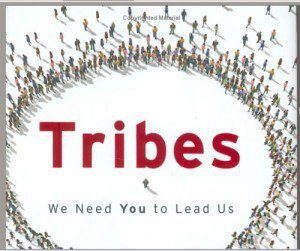Listening to a McKinsey podcast (Hi_Tech_Podcast) entitled “Redefining the marketing landscape” and featuring Dave Edelman, I was aroused by the phrase that brands should think about being loyal to their customers as opposed to the other way around. In other words, the relationship is typically constructed the wrong way around. Brands should no longer focus on customer loyalty, but about their own loyalty to clients, being more attentive and relevant to their customers themselves. To manipulate a well-known quotation, one might say:
And so, my fellow marketers: Ask not what your customers can buy from you, but what you can give to your customers. Click To Tweet
Building Relationships Is Not Just For B2B

This two-way relationship is absolutely fundamental in the B2B space. A business client is to be treasured, nurtured and delighted. Indeed, the concept of relationship marketing is as old as it gets; but, there has always been a separation made between B2B and B2C because of the scale involved. In reality, the B2C denomination is somewhat misguided because the vast majority of B2C businesses have intermediaries in the form of distributors and retailers who are at the coal-face with the end consumer. They are, thus, better classified as B2B2C. Only, because of the largely confrontational nature of the relationships between brand and distributor, many “B2C” brands forget to consider the distributor as a bona fide partner, much less a paying client.
In many ways, in a B2B2C environment, a brand’s relationship with the end consumer is all the more strategic because of the intermediary. And yet, most FMCG brands are more intent on creating automated marketing and massifying any CRM and loyalty programs. It’s all about gaining efficiencies in the way to deal with so many numbers.
Build a Tribe

We Need You To Lead Us
Seth Godin popularized the notion of building a tribe around your brand in his book, Tribes. In brands where “tribes” are legitimate and thriving (inside and outside the company), there is a personal feeling to the brand. The brand has a personality, expressed by individuals who share a set of de facto values. For many B2C brands, such talk feels like stuff right out of left field, i.e. it’s just not possible for them. Yet, as brands continue to vie for share of heart, mind and wallet, the ability to “earn” a customer’s long-term fidelity will pass through much more than a loyalty card. The way it works today, for the most part, the loyalty card is just a plastic impersonation, driven by rational data. That's not good enough. Click To Tweet Today, we need to feel the appreciation.
Inscribed behind the idea of being loyal to one’s customers, is the notion of providing a set of personal services that show the gratitude. Just as a friend might call you out of the blue with no agenda, can a brand legitimately reach out and ‘gratuitously’ say thanks to its customers — in such a way that will also help reinforce, if not ensure, the lifetime value of a customer? If brands don’t at least aim for such a mindset, they surely won’t get there given the multitude of other, conflicting forces, that impede long-term business sense. A good starting point, though, is to do a reality check on how loyal the brand is to its own employees. Loyalty and fandom must start and be cultivated, in priority, within the organization. #buildatribe Click To Tweet
Your thoughts and reactions are welcome, as always!










